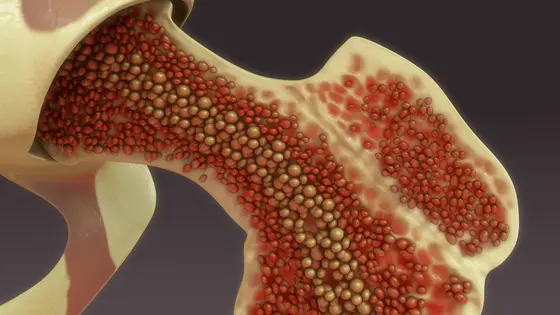Contrary to popular belief, cancer cells are by no means immortal, nor can they divide indefinitely: Mature cancer cells, which make up the bulk of a tumor, divide rapidly, but after a number of cell divisions their capacity is exhausted. Cancer stem cells, on the other hand, can provide replenishment of mature tumor cells for decades. Cancer stem cells are mostly dormant, do not divide, and thus escape the effects of many cancer therapies. Therefore, cancer recurrence often occurs after what initially appeared to be a successful therapy:
Cancer stem cells are very rare and therefore very difficult to isolate and study. Moreover, they are closely related to normal stem cells, which ensure the regenerative capacity of tissues. This complicates the development of much-needed drugs that target cancer stem cells without harming the important tissue stem cells.
The international team has developed a method to distinguish between cancer stem cells, mature cancer cells and healthy tissue stem cells. The researchers analyzed both the cancer mutations in the cells' genome and the gene expression in the same cell: the expression profile indicates whether the cells are stem cells or mature cells. The mutation profile, on the other hand, distinguishes cancer stem cells and the resulting mature cancer cells, so-called cancer clones, from healthy cells.
With this method named MutaSeq, scientists examined thousands of individual cells in parallel, gathering genome-wide information. The technique allows to quickly generate a very detailed molecular profile of complex tissues and cancers, opening up the possibility for completely new research approaches.
MutaSeq was first used to study bone marrow cells from patients with acute myeloid leukemia (AML). The scientists were able to identify normal blood stem cells as well as leukemic stem cells as well as the precursors of leukemic stem cells. In addition, they were able to distinguish progenitor cells, which arise from the divisions of healthy blood stem cells, from leukemic blasts, which arise from the divisions of leukemic stem cells.
The scientists discovered leukemia stem cells that were extremely closely related to the healthy blood stem cells. This illustrates the great difficulty in developing active substances that specifically attack cancer stem cells but do not harm the healthy blood stem cells. However, the scientists also came across an interesting gene in their analyses that plays a role in all leukemia precursors but not in healthy blood stem cells and therefore warrants closer investigation.
The team from Heidelberg and Barcelona assumes that the MutaSeq method is also suitable for single-cell analysis of other tumors.
* The Heidelberg Institute for Stem Cell Research and Experimental Medicine (HI-STEM) gGmbH was founded in 2008 as a public-private partnership by the DKFZ and the Dietmar Hopp Foundation
Lars Velten*, Benjamin A. Story*, Pablo Hernández-Malmierca*, Simon Raffel, Daniel R. Leonce, Jennifer Milbank, Malte Paulsen, Aykut Demir, Chelsea Szu-Tu, Robert Frömel Christoph Lutz, Daniel Nowak, Johann-Christoph Jann, Caroline Pabst Tobias Boch, Wolf-Karsten Hofmann, Carsten Müller-Tidow, Andreas Trumpp, Simon Haas & Lars M. Steinmetz: Identification of leukemic and pre-leukemic stem cells by clonal tracking from single-cell transcriptomics. (* Joint first authorships)
Nature Communications 2021, DOI: doi.org/10.1038/s41467-021-21650-1



